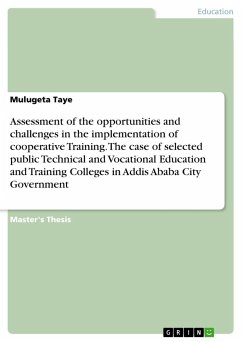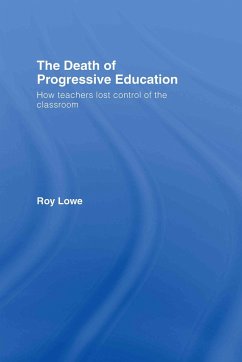
The Conservative Case for Education
Against the Current
Versandkostenfrei!
Versandfertig in 1-2 Wochen
167,99 €
inkl. MwSt.
Weitere Ausgaben:

PAYBACK Punkte
84 °P sammeln!
The Conservative Case for Education argues that educational thinking in English-speaking countries over the last fifty years has been massively influenced by a dominant liberal ideology based on unchallenged assumptions.The book shows how twentieth-century voices such as Eliot, Oakeshott, Arendt and Hirsch remain highly relevant today, using them to make a conservative case for education. A concluding chapter sums up this case in a set of Principles that would be acceptable to many from the Left, as well as the Right of the political spectrum.














